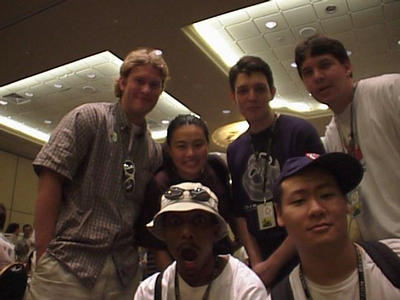| Communities of Practice | 2002-11-15 23:59 1 comment |
 by Flemming Funch by Flemming FunchCommunities of Practice is something more people are talking about. See a primary article by Etienne Wenger, who is a key proponent of the concept. It is essentially a loosely organized group of people who are sharing some kind of activity, and who are learning together. That is different from a Community of Interest, which would be people interested in a certain subject or having a shared concern or desired outcome. It is also different from a geographical community, where people are linked by the fact that they live or work in the same place. None of those necessarily involve that people are sharing the same activity. In a Community of Practice people recognize that they're doing the same kinds of things, that they need the same kinds of tools and the same knowledge about using them well, but they might very well belong to different organizations or different departments in a company. So, it is not a team or a unit or a business. It is not a set of relationships or contracts, but rather it is about the activity that people share. People belong to communities of practice at the same time as they belong to other organizational structures. The community is maintained to the degree that people contribute to the activity, adding value to it as a whole. Wenger talks about the cycles associated with such a community, from discovering a need for it, towards engaging in developing the shared practice, towards it dispersing when no longer needed. There are some examples in this article. |